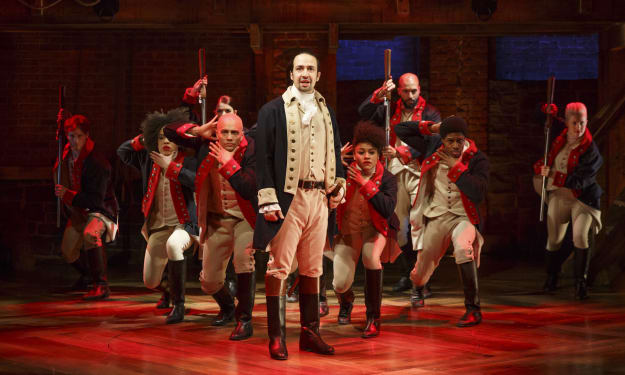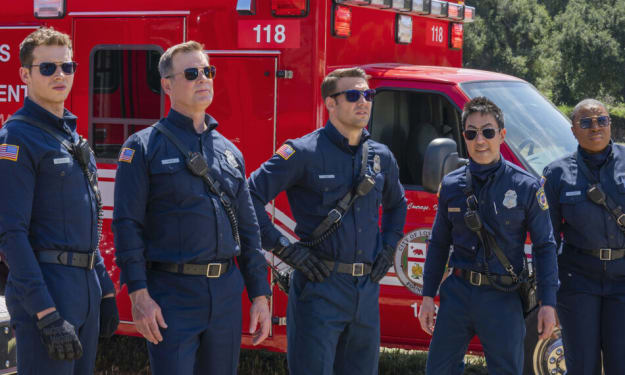Aaron Sorkin moves to the next level as a writer/director with "The Trial of the Chicago 7"
It's more than just a 'walk and talk'

"The Trial of the Chicago 7" is written and directed by Aaron Sorkin and anyone who knows me will tell you that I am a huge fan of his. I've watched almost every single TV programme and movie he's ever created, although for some reason I've never been drawn to "Charlie Wilsons War" and I only discovered "Malice" (Sorkin's second movie script from 1993) when researching for this review.
I first fell in love, like many, with the TV series "The West Wing"; great writing and smart dialogue that looked to pull the audience up and along instead of dropping down to the lowest common denominator. It was full of poetry and earnest passion that was brought to life and made to sing by incredible character actors who inhabited their roles to a level that I'd never seen before. And it was about <em>something</em>, not just another dramatic story with a few twists and turns to make it interesting, but there was substance that didn't just want to get your attention for the sake of it, but gently encouraged and even urged you to actively consider the bigger socio-economic issues being presented - even if it was an episode about something as mundane as the national census.
Sorkin famously left "The West Wing" at the end of season four (there are seven in total), officially by mutual consent, but ultimately because of the tension between his creative process and the higher than average production costs the profit focussed studio didn't want to pay anymore. Sorkin tried network TV again with the brilliant yet short-lived series "Studio 60 On The Sunset Strip" that was cancelled after just one season as again, the production costs couldn't be sustained with the below expected ratings the show received.
Still well-respected in the industry, he won huge acclaim and a Best Adapted Screenplay Oscar for the film "The Social Network" before coming back to TV on HBO where he would seemingly have the money and the freedom to indulge his creative ambition and process. He created and wrote a wonderful series called "The Newsroom" that is truly excellent, but again, it wasn't something that could be sustained and it only lasted three seasons.
Now why am I telling you this? You came here to read a film review on "The Trial of the Chicago 7", not a short-history on the career of it's writer/director. However, for me, the context of Sorkin as the lauded stage and TV writer with a reputation for conflict when his creative vision clashed with those of others around him (either for their own creative of financially motivated reasons), is crucial to understanding why he now plies his trade as a writer/director in film.
Television is famously a writers medium, but they still have to answer to executives to keep the lights on; where as film is all about the director and the money is often raised beforehand and then effectively given to the director to go and create his vision. There is a level of control and autonomy Sorkin receives as a film director that he never truly had as a writer for hire in TV, so it makes perfect sense that this would be how he now chooses to work - but that doesn't mean that he's good at it.
To be fair, his debut feature, "Molly's Game" starring Jessica Chastain, is an enjoyable dramatic thriller that's well written (as you'd expect) but the direction is arguably functional and nothing special and as much as I appreciate it, it's just not in the same league as other films he's written that were then directed by masters such as Rob Reiner ("A Few Good Men"), David Fincher ("The Social Network") and Danny Boyle ("Steve Jobs").And that brings us to "The Trial of the Chicago 7" - a political come court room drama set amongst the tension of both the Civil Rights and the anti-Vietnam War movements. The first thing to note is that despite being set in 60's America, this film is strikingly resonant today in a time of Black Lives Matter protests and growing civil unrest. And the second, is that it's not just good, it's really really good.
Sacha Baron Cohen (as Abbie Hoffman) and Frank Langella (Judge Julius Hoffman, no relation) both deliver stand-out performances with Cohen perfectly balancing his role as both the comic relief and trustworthy narrator. But the triumph is Sorkin's directing. It's more ambitious, it's more technical and it's much more effective than "Molly's Game" with one very impressive sequence in particular; cross cutting scenes from three different locations and three separate time periods to deliver exposition, key character development and successfully build incredible tension towards a pivotal moment in the story all at the same time. It's as if he gained his directing 'sea-legs' with "Molly's Game" and is now using everything he's learned from Fincher et al to fully realise the potential of his writing on screen.
"The Trial of the Chicago 7" is a must watch film that can be uncomfortable at times, but it's an important discomfort that urges the audience to see the truth of our past, the reality of our present but then also have the courage and hope for our future too.
Rating - 4/5
About the Creator
Matthew Buck
Amateur film blogger! Love everything about the movies, from the stories & characters to the whole big screen experience and surround sound. You can follow me on Twitter & Instagram @matthewrbuck and visit my main site at mattbuckfilm.com






Comments
There are no comments for this story
Be the first to respond and start the conversation.